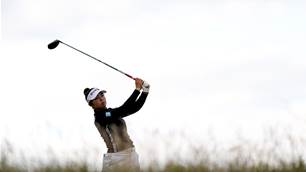Need for "different" system of NRL player movement intensifies.
 The latest round of the rugby league meat market drives home the need for any kind of system that is different to the current one for player movement in the NRL. (Photo by Getty Images).
The latest round of the rugby league meat market drives home the need for any kind of system that is different to the current one for player movement in the NRL. (Photo by Getty Images).THIS MONTH'S WINNERS AND LOSERS IN THE WORLD OF SPORT ...
LOSER: NRL PLAYER MOVEMENT
WINNER: WORLD CUP CRICKET
This World Cup has made a strong case for the continued relevance of the 50-over format, which gives weight to a plan pushed by Cricket Australia to rebrand all ODI as World Cup Cricket. According to CA chairman Wally Edwards, the broad outline would be to create a points system for ODIs played throughout the year, which could then feed into a year-end series or qualification for the next World Cup. This would provide ODIs the context they have been sorely lacking. Furthermore, by defining 50-over cricket as part of the game’s keynote collective event, it would give it a separate and complementary character to Tests, which remain bilateral. The one-dayers at the end of every tour won’t feel so tacked on. If T20 can be relegated to the domestic level, cricket could have a competitive structure that makes sense. And the only thing left to do would be to restore some balance in the bat-versus-ball contest in favour of those poor bowlers ...
LOSER: INTEGRITY UNITS
Rough month for the concept of the integrity unit, which is beginning to inspire the same kind of bemused reaction as the term “business ethics”. Established as a feature of the sports landscape by the former Labor Government and the Australian Crime Commission’s “darkest day” kerfuffle, the new watchdogs haven’t exactly inspired confidence. The NRL, which has never had a problem generating raw material for scandal, saw itself enmeshed in claims that its integrity unit curiously overlooked information in the arrest in Arizona of South Sydney player John Sutton and former team-mate Luke Burgess – information that was obtained by a newspaper after a Google search. The rugby league had it easy compared to the disgrace that rained upon the greyhound racing industry after the expose by ABC’s Four Corners. The revelations about live baiting reinforced the worst stereotypes about the sport, and its supporters can rightly ask why its regulators were not aware of a practice so widespread. The integrity unit is at risk of becoming an administrative release valve of sorts – a handy scapegoat that leagues or sports organisations can hand off their problems to while avoiding executive responsibility for the main issue.
LOSER: WINTER WORLD CUP
A badly kept secret was finally confirmed, as Qatar 2022 will indeed be a winter World Cup (except for us in the southern hemisphere) despite the fact that it didn’t bid on that basis. The disruption to the rhythm of the soccer fan’s seasonal clock is no small matter, although there will be a few folks, particularly at the AFL, who won’t be minding the time shift. It’s yet another nail in FIFA’s credibility, and one can only hope that all these issues will receive an appropriate airing when the organisation has its presidential election in late May. Don’t hold your breath – there’s very little chance that Sepp Blatter will lose – but the mere fact there is a field of candidates arrayed against him is significant. As the head of the pressure group New FIFA Now, Skins sportswear chairman Jaimie Fuller said, this is a first step to exert influence on an organisation that is not held to account.
WINNER: AFL'S THREE-STRIKES POLICY
Recent revelations of so-called “recreational” drug use among football players have again spooked certain horses about “drugs in sport”. Let’s be clear about this – again. The use of recreational drugs out of competition should not be the concern of anti-doping bodies ASADA and WADA; they shouldn’t even be wasting their time testing for them. They have more important things to chase: banned performance-enhancing drugs that threaten the integrity of sporting competition. What a player puts into their body out of competition to get high is an issue between player and employer (their club) and/or the player and the police. Recent drugs charges in Queensland have again thrown the spotlight on the AFL’s ”three-strikes” policy, and assembled a brigade of commentating types into noisy panels again putting the boot in, suggesting that the AFL should abide entirely by the WADA system of sanctions. In fact the AFL’s stance represents an enlightened policy in this day and age that takes into account the possibility that players are human and capable of falling to temptation on a big night out; to have their careers derailed as a result is way out of proportion to their misdemeanour. That with counselling, confidentiality and a second (and yes, third) chance, they might find redemption by continuing to compete in the sport itself, rather than expect them to benefit by exclusion from it. In short: it’s a good idea, and we hope they stick with it. The idea that all sports should abide by a one-size-fits-all system doesn’t allow for the cultural influences and differences that many athletes must deal with. We do NOT condone the use of illegal drugs, and find it ludicrous that professional athletes would risk their health and fitness by indulging in them. But this is a drugs in society issue – not just drugs in sport. And it always confuses debate about who are the real cheats in sport. Recreational drug users only cheat themselves.
WINNER: LYDIA KO
There’s been plenty of talk in this early part of the golf season about the decline of certain champion players. Here, we would properly identify a new one emerging, and quickly. Lydia Ko, at 17 years old, is the finest female golfer on the planet. What this girl (okay, woman, when she turns 18 in late April) has achieved is utterly remarkable. Since becoming the youngest professional no.1 in golf history in February, Ko won two of her next three events, including the Women’s Australian Open at Royal Melbourne. The Korean-born New Zealander’s immediate success confirms the notion that she was already the best player in women’s golf while still an amateur back in 2013, something that no one since Bobby Jones could say. And while Ko says she’ll likely only play until she’s 30, there’s going to be a lot of winning between now and that point.
Related Articles

Yamashita streaks ahead as three Aussies advance

Say her name: U.S Women's Open tip is in



.png&h=115&w=225&c=1&s=1)









